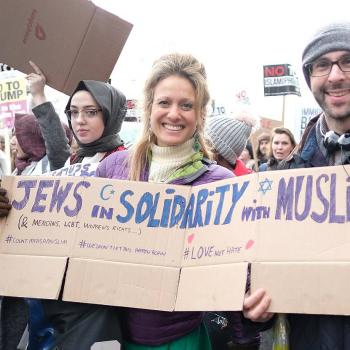 |
|
Waleed Shaalan
|
In the Name of God, the Most Compassionate, the Most Merciful. Let me tell you about my brother. As the blogosphere was aflame with intense speculation (and it was just that: speculation) about Cho Sueng-Hui’s possible connection to “Islamic terrorism” because of the words “Ismael Ax” tattooed on his arm, the Virginia Tech Muslim community was mourning the death of one of their brightest stars.
Waleed Shaalan, 32, was a graduate student in the Civil Engineering Department at Virginia Tech. He first came to VT in August 2006 from northern Egypt. He took on an assistantship position, choosing to leave his Ph.D. track which he started in Egypt. He was known for “his broad smile and wave that he gave everyone.”
Says Fahad, Waleed’s roommate: “He was the simplest and nicest guy I ever knew.We would be studying for our exams and he would go buy a cake and make tea for us.” Fahad was the last person to have spoken to Waleed.
“He was studying late for an exam the morning of the incident,” Fahad said, “it was about 4 am when I last saw and spoke to him. We were talking about how amazing it would be once he brought his wife and son to Tech after the summer. I could never have imagined that in 5 hours he’d be gone forever.”
Mr. Shaalan is survived by his wife for three years, Amira, and Khaled, his one-year old son.
As some people were wondering whether Cho Seung-Hui was a “terrorist” because of two cryptic words on his arm, details were emerging about how Mr. Shaalan was murdered in cold blood.
As reported in the New York Times, Waleed Shaalan died a hero: according to Randy Dymond, a civil engineering professor at Virginia Tech, Mr. Shaalan was in a classroom with another student when the gunman entered and opened fire.
Mr. Shaalan was badly wounded and lay beside the other student, who was not shot but played dead, as the gunman returned two times searching for signs of life. Just as the gunman noticed the student, Mr. Shaalan made a move to distract him, at which point he was shot a second time and died. The student believed that Mr. Shaalan purposefully distracted the shooter to save him, Mr. Dymond said.
“Waleed was bright, energetic and caring,” Mr. Dymond said. “The reason we are in higher education is because there are students who are the bright light to the future. Waleed was one of them.”
That was my brother who died there. That was my brother who put his own life on the line to save the life of someone else. That was my brother who embodied Islam’s teaching that the sanctity of life is paramount. Now, to be clear: Mr. Shaalan is not my actual, “blood” brother. Rather, he was my brother in faith: “The believers are one brotherhood” (49:10)
Still, Waleed Shaalan gave his life to follow the instructions of the Qur’an: “…if anyone saves a life, it shall be as if they have saved all of humanity.” (5:32) This is how the majority of Muslims live and act. This is what the majority of Muslims believe about life and death. Waleed Shaalan is the true face of Islam, not the murderous, vicious soldiers of Satan who kill and destroy and claim they are doing so in Islam’s name.
Thus, for some to try to link Islam to the Virginia Tech shootings is insulting. When it first came out that the shooter was “Asian,” some people asked the question: “Were they from Pakistan and part of a terrorist attack?” How sickening.
Of course, I am also sickened by the acts of terrorism committed by some Muslims in the name of Islam. Of course, authorities must consider all possibilities when investigating an incident as terrible as the shootings at Virginia Tech. But to automatically assume that it is “terrorism” whenever something even remotely connected to Islam shows up, this is plain wrong.
Waleed Shaalan was what Islam is all about: kindness, caring, compassion, and respect for life. Rather than take your life senselessly, you will find that the overwhelming majority of Muslims would do what they can to save your life, because, their religion tells them so.
Hesham A. Hassaballa is a Chicago physician and writer. He is the co-author of “The Beliefnet Guide to Islam,” published by Doubleday in 2006. His blog is at godfaithpen.com.














